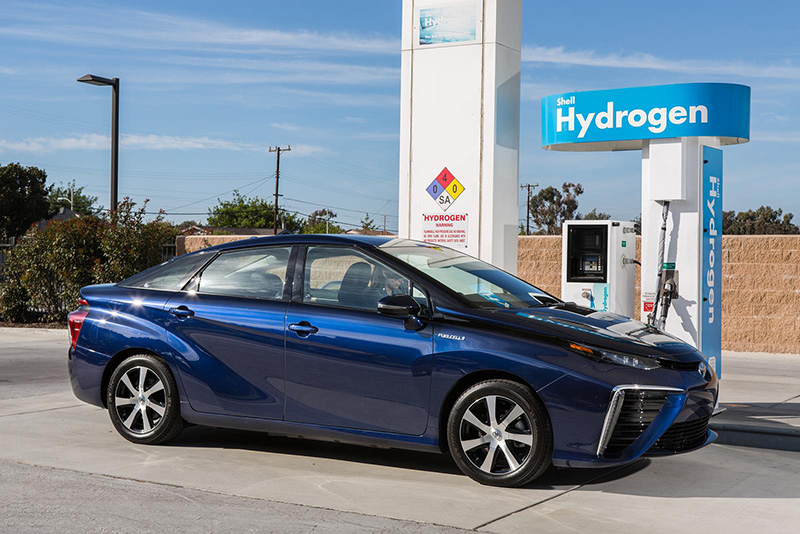
January usually marks the beginning of the big annual auto shows held in major U.S. cities across the country, where major automakers unveil their latest models and technologies. But the real kickoff has now clearly become the CES (Internal Consumer Electronics Show) held last week in Las Vegas, where a record 11 automakers made significant news involving alternative fuel vehicles and a host of technology enhancements that car consumers will begin seeing as early as this year.
One of the most significant announcements coming out of Las Vegas was the decision by Toyota to release all 5,680 patents the company owns for hydrogen fuel cells into the open market. Those patents, representing many millions of dollars, will now be available royalty-free, the first time that Toyota has taken such a step.
"I believe today marks a turning point in automotive history," said Bob Carter, Toyota's senior vice president, during a packed press conference where he made the announcement last week.
Toyota's decision not only underscores their commitment to follow through on delivering a previously-announced hydrogen fuel cell powered vehicle (called Mirai which is Japanese for "future"), but also represents an obvious need to create a community of fuel-cell developers who can rapidly build out the support structure this car desperately needs.
Hydrogen fuel cell-powered cars offer some promising advantages. They are considered to be emission free (only pure water exits the tailpipe), have a greater range than today's all-electric vehicles (300 miles), use far fewer moving engine parts (vastly reducing maintenance cost), and can be fully refueled in three to five minutes (vs. a minimum half hour for electric battery recharge).
"We are leaving the age of hydrocarbons and entering the age of hydrogen," declared Dr. Michio Kaku, a noted physicist and television celebrity, during the Toyota press conference.
However, refueling the car (which will sell this year at a retail price of $57,000) is currently a major challenge. There are only 13 reported hydrogen refueling stations in the U.S. and most of them are in one state - California. And, although Toyota and Hyundai (the only other maker of a hydrogen fuel cell vehicle) have publicly agreed to provide free hydrogen fuel for any new car owner for a period of three years, the estimated cost per 300 miles is a minimum of $50 per refueling, and the cost of building one station is between $1 million to $2 million.
This is why Toyota not only released their fuel cell patents last week, they also made all of their hydrogen station-related patents royalty free as well. They are hoping that this will spark enough interest to create a larger station network at a cheaper cost.
While Toyota's promotion of their hydrogen fuel cell technology gained a great deal of attention, there were other important developments on the automotive front. Nuance, one of the world leaders in voice recognition technology, unveiled enhancements to the Dragon Drive connected car platform, including a new virtual assistant service providing personalized content to the driver.
Using Nuance's mobile application, drivers can synch their smartphone experience with their in-car infotainment system. Once connected, the smartphone is locked and interaction is driven from the car's head-unit screen to lessen driver distraction.
Another new innovation revealed last week by BMW is a remote-controlled valet parking system for cars that uses a smartwatch. Linked to a prototype BMW i3 model, the driver activates the parking assistant using an app and then on-board lasers help guide the car to a parking spot entirely on its own.
With cars essentially becoming computers on wheels, they also have emerged as major data collectors as well. This was the focus of a major keynote address delivered by Ford CEO Mark Fields during the weeklong show.
According to Fields, today's cars produce "upwards of 25 gigabytes of information per hour," which include everything from driving habits to travel patterns. His plan is for Ford to harness as much of this information as possible with the voluntary assistance of its customers to develop not only better cars, but improved urban transportation systems as well.
"Our roadmap must not just include smarter cars, but smarter roads and smarter cities," said Fields.
Amidst the new TV sets and wearable technology demonstrated at CES last week were plenty of automakers who were visibly making the point that they are tech companies, too.














